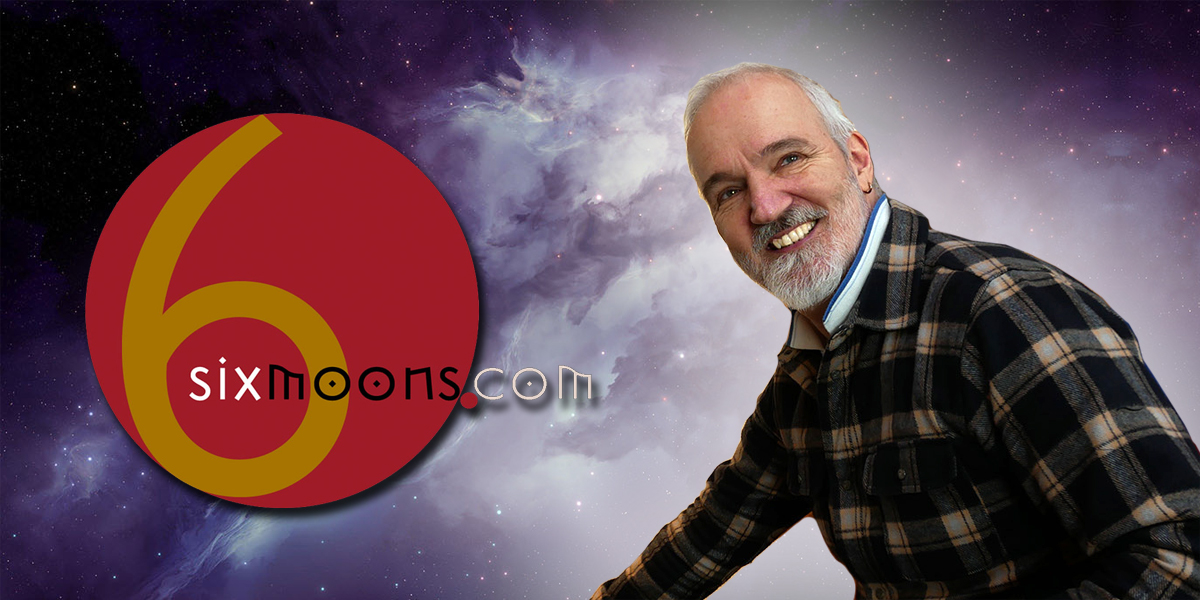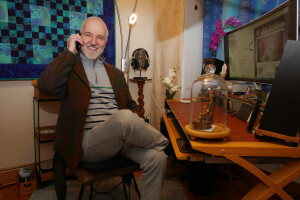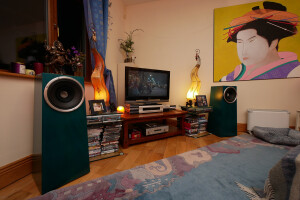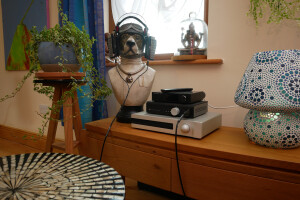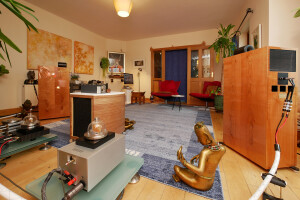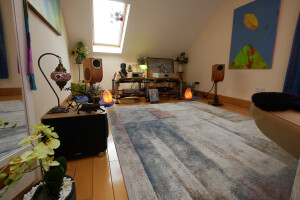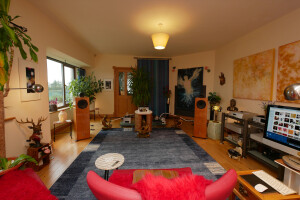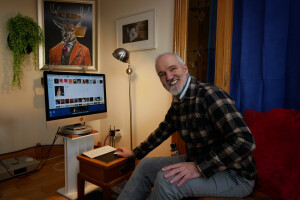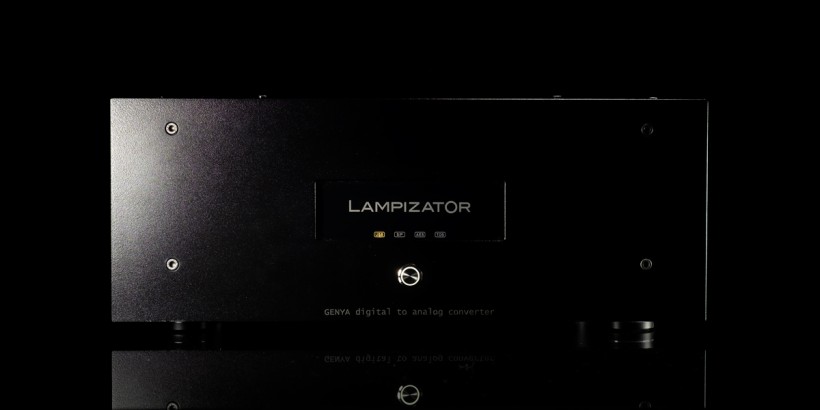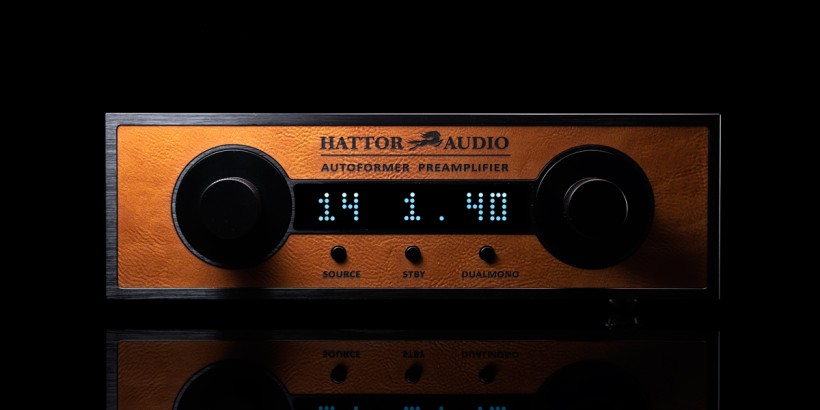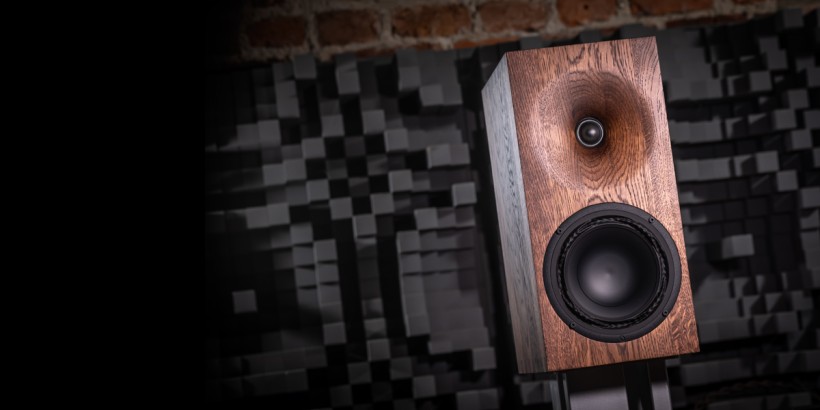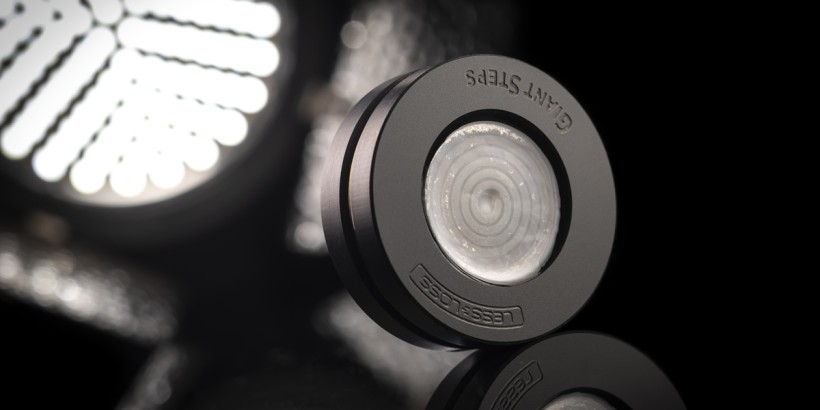If you visit 6moons.com regularly, probably you’ve seen several interesting interviews initiated by its founder Srajan Ebaen. Now it’s high time for someone else to ask the man himself about this and that. Enjoy!
- Let me ask you first about the two recent pandemic years. As a reviewer, have you experienced difficulties during this time that you wouldn’t normally face; or changes that affected your work?
I’ve now worked out of a home office since 2002. In all that time I have suffered no commutes or working from external offices. On that score and the associated self-contained life style—product coming and going, me writing about it–nothing has changed. It’s the global supply-chain issues and slower shipments which affect hifi manufacturers that in turn affect my job with greater delays. A lot of loaners arrive late. Some product can’t be built because its maker awaits parts which are inordinately back-ordered. It’s on scheduling that I see the effects of C-19. Here and there that might create a few holes in my usual content updates. Those simply get plugged with extra editorials or industry features.
- Many people read you but are there particular YouTube channels or hifi websites you enjoy visiting?
I track all the major hifi websites on a daily basis. It helps me stay on top of new product releases. Being informed is part of my job. Like everyone else I have favorite writers whose reviews I read or at least scan. For YouTube channels, John Darko’s is the only one I follow. I’ve tried others but for me they just didn’t have it. Watching someone read off a teleprompter or a young kid disseminate incorrect information doesn’t do it for me.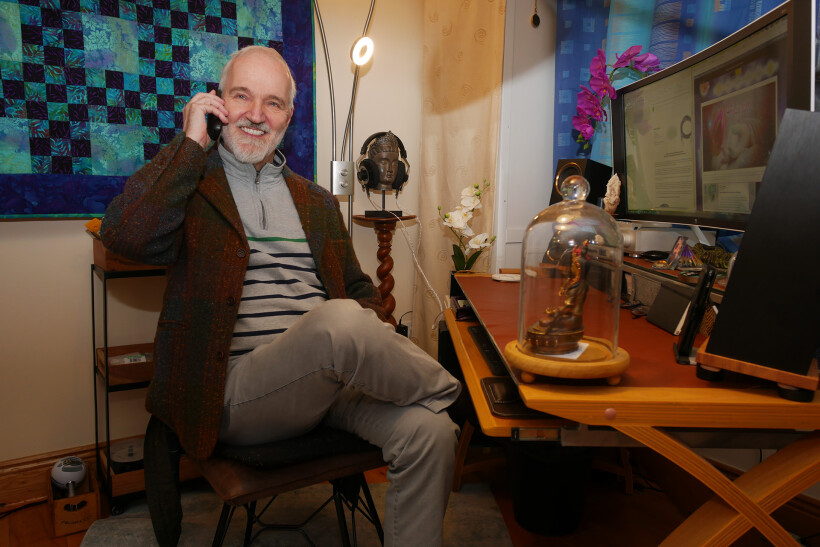
- A while ago you asked me if I had separate listening modes for reviewing and pleasure. To turn tables, how is that for you?
To me, immersive listening demands self-forgetfulness. That approaches an altered state. It actually will change how my body feels. But that’s for personal amusement. It’s not a place I can write from or collect comparative listening data in. To listen for reviewing demands noticing specifics. It’s not about getting lost in the musical totality. That’s like day dreams. They are intensely personal and a bit like a trance. One can’t take anyone else there. For reviews, a critic or noticer thus must remain present to resist the trance. That’s not how I think one should listen for pleasure. For pleasure, the critic should get the boot so that the musical energies can connect with our emotions or higher mind and take those on a journey without an observer that holds back to take notice. For me, critical listening and fully immersive listening are two very different things. One is analytical, dissective and focused down like a laser. The other is a let-go and merger into expansiveness and inner tripping like turning the lights off altogether.
- Since you’ve reviewed for a full-time living so long already, it seems fair to assume you have a fixed daily schedule. Or is every day different?
Our small household is very flexible. We eat when we’re hungry, not by the clock. We get up and go to sleep when we feel like it. The same goes for my work schedule. I might wake up at 2:00am one morning with an idea, sneak downstairs to my work desk, write that editorial then go back to sleep. Or the weather might be stunning so we take the entire day off. I might have a syndication or translation to work on which demands a certain head space. I might chase new music to spend an entire day canvassing Spotify, Qobuz or BandCamp to buy new albums. I might pen a preview which I always do well prior to product arriving. I might work on wrapping up a review. I might listen to collect impressions. My whole idea of being self employed is freedom from 9-5 monotony and the whole Mo-Fr fix. So while there certainly is a pattern—I tend to be extra gungho to write first thing in the morning—it’s rather flexible. I really can write anytime and tend to do it every day.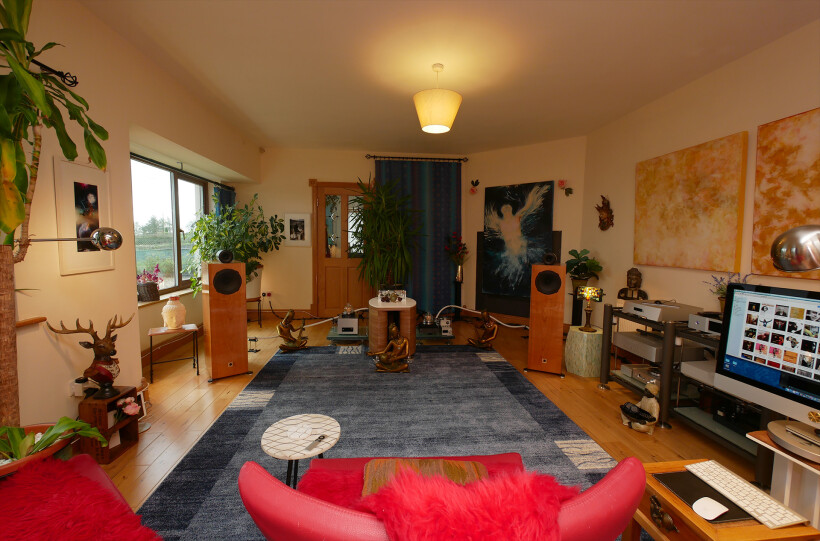
- Can you shed light on how your review process looks from start to finish?
I write a preview which entails reading up on the product and/or getting with the manufacturer for detail beyond what’s published. Once the product arrives, I take first photos and add those to the preview. Then there’s a day or two of low-level warm-up play to get the loaner settled in. At night the system remains idling to accrue steady ‘on’ hours. Now comes the most important listening session. It’s when the status quo is firmly to mind and gets head-on confronted by whatever changes (or not) the new arrival makes. It’s this very first clash or time of greatest keenness which cannot be recovered. There’s ever only one first impression to make. That quickly establishes a general sense of a certain climate, flavor or personality. During the days following, I watch whether that changes or shows different facets across different music types. Then the loaner goes back out and my hardware status quo resets. Now I watch for the delta. Did my first assessment exaggerate the difference? Does it feel smaller now? The loaner goes back in for extra delta confirmation. Then it’s time for comparisons. Once the entire picture is clear, I select specific music examples to illustrate certain points. Finally it’s time to write it all up. I never take notes. I simply allow my sensory impressions to pool into my subconscious. When the time comes to finish up the review, it’s all there quite well organized already. Then it’s a few rounds of editorial tweaking to insure continuity, to fix inelegant turns of phrase, throw out ballast, improve rhythm and flow… and then it’s the WordPress ‘publish’ button.
- Are there specific aspects of other publications or channels you find particularly appealing? And to do a 180°, are there approaches that don’t work for you?
I can get something from most anything. Pick the ripe berries, leave the rest. Isn’t that what we all do? What I do hate is obvious laziness. That could be entire cut’n’paste jobs straight off a manufacturer’s website. For show reports it could be photo dumps without credits so we don’t know what we’re looking at. It could be regurgitated buzz words without explaining what they mean. It could be overlooking an entire product feature. It could be relying wholly on stock photos or not showing the reviewer’s room for context. It could be fluff language like ‘awesome’, ‘very musical’, ‘I was blown away’. In short, it’s when reviewers do a weak job that neither does the product nor its maker justice nor contributes anything new and valuable that I zone out and don’t come back. I also hate snark and when political color enters the narrative.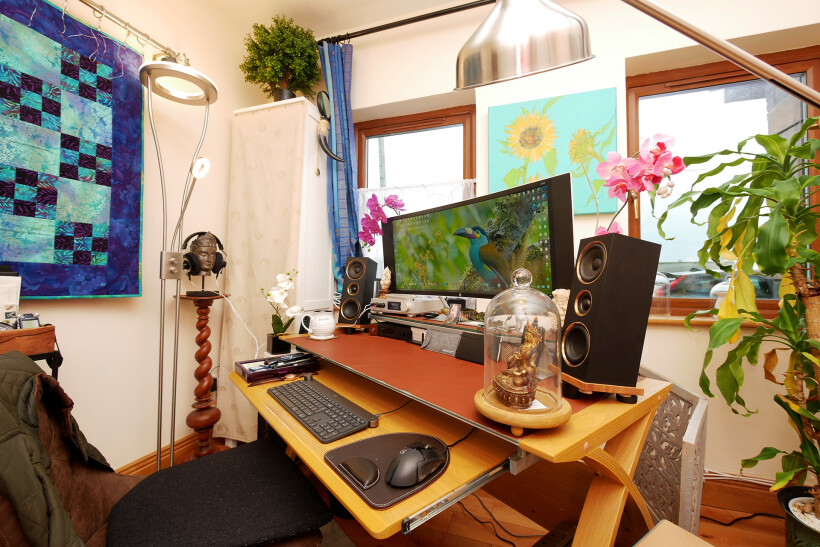
- Can you tell us how your site has grown in recent years? Or did it peak way back when and has been smooth sailing at a constant clip since?
I haven’t looked at my site stats in ages so haven’t a clue. I really have no ambition to be biggest, best, most popular or any other form of ‘first’ ranking. If you don’t need to know that, you don’t need stats. As long as I can support our small household and continue what I enjoy doing which is write, I’m happy. I like it uncomplicated. Ambition is a young man’s game. I’m older now. I’m in the harvest period of my life. My private little garden is firmly established. It’s without weeds and blooms every single season. Now I cultivate that. It’s important to find one’s ideal balance and size where a business remains fun and sustainable rather than grows out of proportion. Being big comes with new challenges and obligations. I leave those to others who gladly embrace them.
- Is writing easier or/and more enjoyable to you that listening and swapping hardware? The other way around? Or is there no clear winner and it all depends?
I much prefer writing to critical listening though both are just as easy. Do anything long enough and that’s what you’d expect. But writing is my form of creative self expression. Critical listening isn’t. That’s merely a self-imposed condition to achieve certain results. It’s like putting on a tight hat which I take back off again. I must wear it to have something concrete to say. Vagueness of ”I forgot all about the equipment and got carried away by the music” doesn’t cut it. It’s got to be specific. But listening for pleasure is another thing entirely. It’s not comparative or compulsive. It takes everything at face value. Like normal sex not porn, it’s also very intimate so not for public consumption.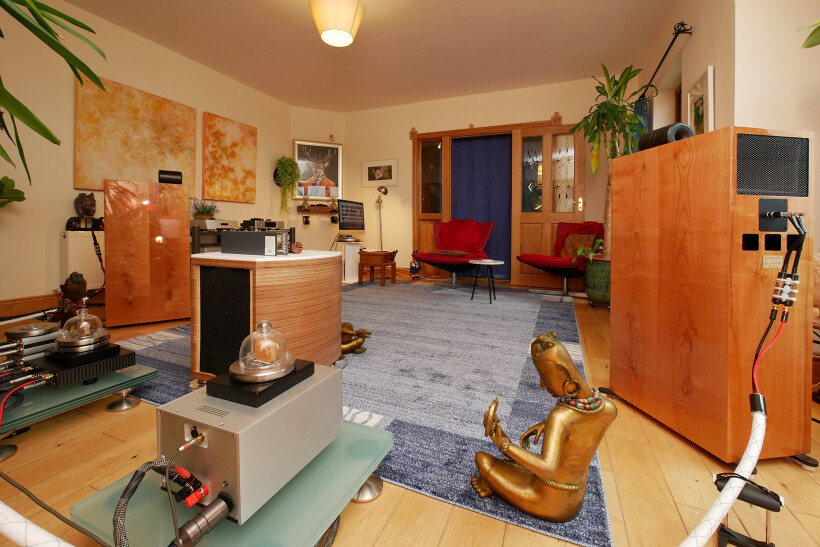
- It’s apparent that writing comes easy to you so if you decided to write about anything other than audio, what would it be?
I’ve not really thought about it yet. In some of my editorials, I already touch slightly upon some other things. I’d probably pursue those further but disassociate them entirely from music playback. In my younger years I enjoyed reading Science Fiction and Fantasy like Roger Zelazny and Michael Moorcock. It’s possible that the zone where those genres overlap could lend itself for exploration. The most important requirement would be to have something meaningful to say that’s worth sharing.
- If you could swap your room to one twice as large, would you? Or is your current listening space 100% in line with your needs?
I’ve already had 100m² rooms and with extra-high ceilings. All those bought me were far longer decays. That meants more time confusion particularly in the bass. My current room is just about the ideal size for my needs since I don’t do much big orchestral or listen very loud. Symphonica does benefit from bigger spaces just to support a grander illusion of scale and dynamic excess. As always, I adapt setup and gear to my room. I could easily retire from audiophilia in and with what I currently have. Also, my wife and I just rent. We don’t own. As such, further moves are predestined. Whatever I have at the moment typically represents contentment because I know how to make it work; and we wouldn’t rent a house that didn’t have suitable rooms to begin with.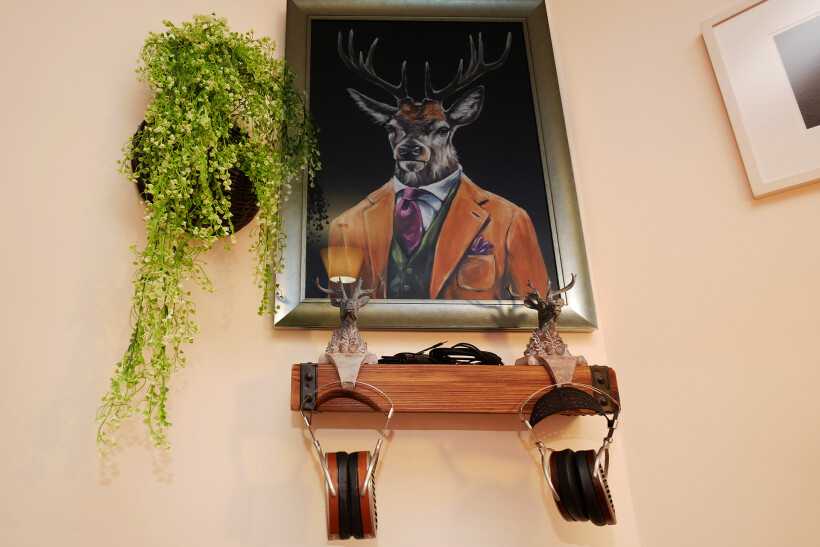
- Considering how much content you’ve delivered each month for all these years, it seems that you’re as passionate about it as ever and many would agree still more prolific. Have you noticed any changes on that front and in the way you work?
That’s a good question. When I was in my late teens early twenties, I studied classical clarinet at the Hannover conservatory of performing arts. Very shortly after my 18th birthday, I met my guru Osho in India. He gifted me with the name Dhyan Srajan. That translates to creativity from meditation. He explained that on my path in this particular life, true meditation would express itself as creativity. That encounter changed the course of my life. Ever since I’ve been on an apprenticeship with creativity. In many ways that’s been my continual inner guide. Over time the difference between feeling ‘normal’ and ‘inspired’ has erased. There’s no ‘being in the mood’ involved, no waiting for the muse, no special time or place. It’s anytime, anywhere. There’s no longer any conscious sense of uploading information, waiting for it to ripen then downloading it again. It’s become far more direct and ordinary. But to use a poncy word, it’s part of my spiritual practice. All that means is staying in sufficient alignment to keep the channel open and active. Creativity isn’t ours. We don’t own it. We can’t take credit for what it brings. It just shows up when we make room. Now it uses our life experiences, insights, intelligence and skills to take a form. Honing those is our job. What comes through isn’t. ‘God’ is a terribly big word but if we want to use it, we might say that to be active in this realm, ‘He’ needs to use our hands, mind and heart. The Christian idea of an external father god and one solitary life is simply at odds with the Buddhist experience of our own divinity and many incarnations. That divinity is not separate or outside of us but our very essence or ground of being. As Osho explained it during my name-giving satsang, for my psychology and karma in this body, becoming still in my mind should lead to a co-creative process whereby a virtual wind blows across a hollow bamboo to make sounds. This insignificant body with its conditional crusty persona, German accent and strange opinions can be receptive to inspiration from elsewhere—that’s a word deliberately embedded on my home page—and give that nameless energy a fleshy modality. Now it can express itself in this three-dimensional physical world of ours. Poncy words yes but they do describe my experience and understanding of it. Over 20 years of doing this, I must have cleared out some junk in my attic to improve the mechanics of this transmission. It’s been a gradual process so I can’t be more specific. And it’s ongoing. I don’t think I’ll come to the end of it in this life nor to a complete understanding of what Osho saw for my ultimate potential when I sat in front of him. But already in my current experience there is no limit to creativity. It flows whenever I’m available in an open with-it state and show up. The other day I wrote five editorials. Writing now is as natural as breathing.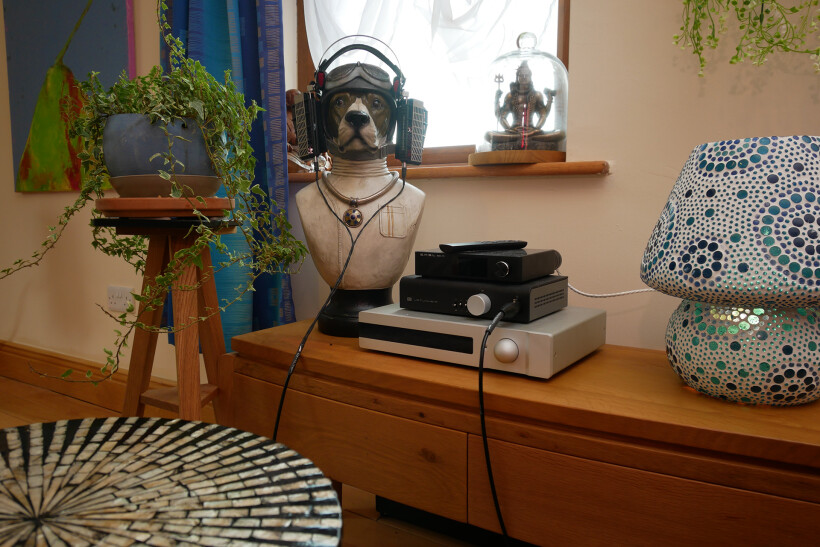
- Your ideal retirement setup, no financial ceiling, your current room. What would that include?
I’ve sampled some crazy-rich gear. It no longers fascinates me in the least. If I retired, critical listening would disappear. Good riddance. To listen for pleasure requires no exotic gear. It’s the listener’s no-mind state and tuned-up emotional availability which make all the difference. So rather than set myself up with any aspirational ‘dream system’, I’d probably retire with whatever I happen to own at the time. Again, that always reflects my current state of contentment though for my job, I do keep around excess inventory. If I retired, I’d prune that down. Even though I no longer play an instrument, I remain a musician. I view language in terms of rhythm and flow, acceleration and rubato, tension and release, tonality and phrasing. Give a musician a beginner’s instrument and he still makes magic. Give a beginner a master’s instrument and he still sounds like a beginner. I listen as a musician. Like for most of them, the quality of playback hardware is actually quite irrelevant.
- I saw that you recently dusted off old-timers by Job Sys and Auralic and put them on duty again. On that note and considering sonic quality exclusively, would you say that DACs, amps and speakers have progressed over the last seven or eight years? Or are they as good but just different?
I think the real issue is the art of putting together a system that satisfies us. It’s not about flashy hardware or technical progress. In fact, one can do it with vintage gear exclusively. It’s about knowing our taste, the limits/limitations of our room and how to make them all play happily in our personal middle.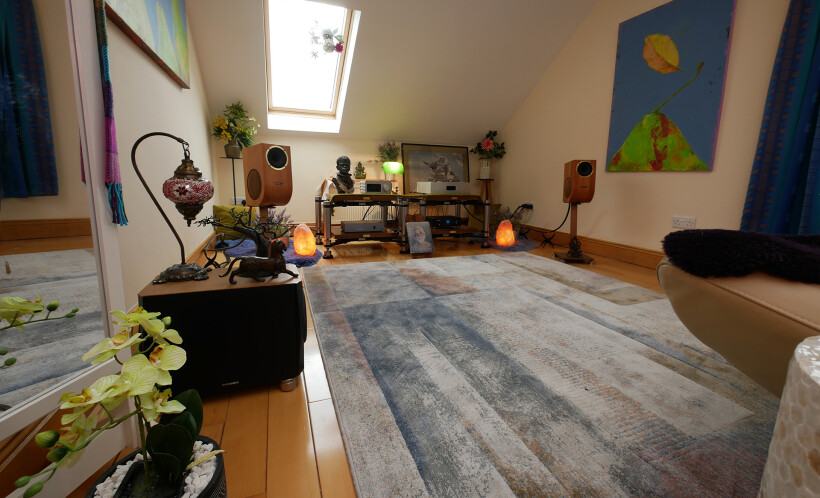
- Subs. Given their recent presence on your site, does that translate to a major sonic leap forward by your standards? And since we’re at it, is there any other specific hardware that you’ve found particularly useful or enjoyable?
Today I consider subwoofers essential if properly integrated in the amplitude and time domain. The biggest forward leap for me was discovering Ripol subwoofers like the ModalAkustik and sound|kaos. Unlike the vast majority of bass makers which operate as 360° pressure generators to reflect off all our room surfaces, Ripols work as highly directional velocity converters. In the most basic terms, they don’t trigger room gain which is reflective and thus always delayed in time. Without room treatments or DSP, they avoid the usual bloom or boom whereby <200Hz textures begin to thicken because the room adds its own output with boundary reinforcement and bass doesn’t stop on time. It overhangs. The benefits of Ripol subs to overall clarity, intelligiblity, seamlessness and absence of pressure-induced listener fatigue are a game changer. To integrate them simply wants us high-passing our main speakers with a quality active filter so their voice coils no longer see any bass; and so that the first two octaves are liberated from omni radiation in favor of a Ripol’s high directivity. Finding the necessary filter hardware when most high-end preamps or DACs lack smart bass management features isn’t easy. Most commercial options are also inexplicably expensive. €48’000 for the Magico is insane and €4’500 for the Wilson is still a lot. So I had Pál Nagy of http://passivepreamplifier.com build me the necessary filters, even install them in my icOn 4Pro SE preamp. That plus the Ripol sub concept have been my biggest discoveries of late. Expected later this year is Pál’s Gradient Box. That’ll be the icing on my cake. It’ll be a fully remote-controlled smart analog crossover with very flexible functionality so an integrator tool of the first order for stereo 2.1 fans like me.
- Patreon is particularly appealing to content creators who want to be financed by their audience rather than manufacturers. It’s more than likely that many of your readers would gladly support you if they had a way. Do you see yourself on Patreon?
I’m not greedy and things work out as is. It’s probably why I haven’t opened up the recurring Patreon tip jar. As a creative person, I don’t enjoy the monetary maintenance aspects of the job. That dates back to a past life as a wandering Indian sadhu. He viewed poverty and disassociation from ordinary life as prerequisites to find God. In this life I’m exploring the other side of that coin whilst remaining focused on a simple spiritual practice. Still, certain habits and preferences die hard. I’ve also been a Mongolian herder who lived a simple nomadic life, who brought animals to the higher summer pastures then moved them back down to lower winter altitudes. That nomadic instinct too left traces. We still move countries and houses on a regular basis even though we can no longer conveniently pack all our belongings in a horse-drawn cart. Back to present-day Western life and its fascination with and obligations around money, my monkish traits still only want the absolute minimum engagement with fiscals. When everything works, I stop paying attention to the whole matter. When more money is needed perhaps because the next move is due, I put my attention on it. Then it always shows up, for example as a sudden new account I didn’t pursue. It’s certainly true that once set up, a Patreon account wouldn’t require any management on my part at all. Making it happen just hasn’t pinged my radar. That’s probably because I presently don’t need it. I do know about Patreon and how it works. I just haven’t felt that ping which is always how I start anything. No ping, no response. I’m terribly stubborn that way.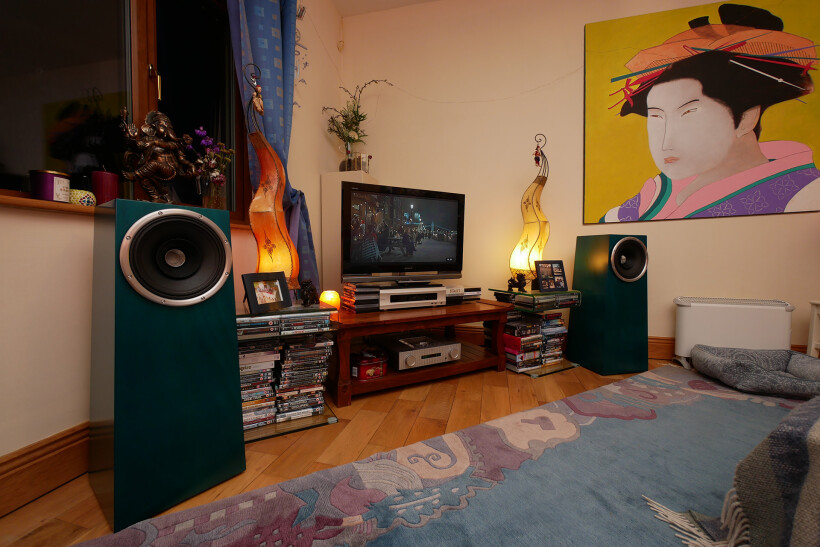
- Have you ever considered making a spontaneous YT video about anything audio, releasing it and seeing what happens?
I wouldn’t want to speak to a stationary camera. That I obviously could do right away. I would need a camera wo/man which I don’t have; and a video editor until I learnt that part myself. Given that I’ve had two decades to practice writing on a virtually daily basis, it’s obvious that I wouldn’t jump into a video presentation anywhere near the top. I’d have to claw my way up the learning curve, preferably in a hurry. I’d actually be leery to come in way at the bottom though that’s the likelihood. So before I would even consider it, I’d have to do a tester video to gauge whether I have the requisite chops at least in sufficiently rudimentary form to develop them properly. I might not have the skills. Plus, I love what I do now. I’m not looking for change for its own sake. I’m not looking for new platforms or additional ways of expression. I’m still aiming to improve my writing. That alone is an open-ended pursuit I’m far from done with yet.
- Pet peeves about readers?
Mistaking my job as being anything other than it is: a reviewer. I’m not their therapist, priest, investment advisor, sales agent, personal hifi consultant or audio chatroom buddy. Thinking that I could compare a component I have today to a component I reviewed six years ago in a different room and country. Believing in absolutes like ‘best’ when best is personal and conditional. Not trusting their own ears. Asking me for a recap of a review when I already said all I had to say.
- Pet peeves about manufacturers?
Issuing press releases with only partial information. Not communicating changes with agreed-to deliveries. Send a one-line email ‘delivery delayed by probably two months’. I can work with that. Just cue me in. Not sending pre-conditioned but virgin components. I work out of a home not factory. Unless I want to listen to something, it’s background noise. Don’t give me noise pollution.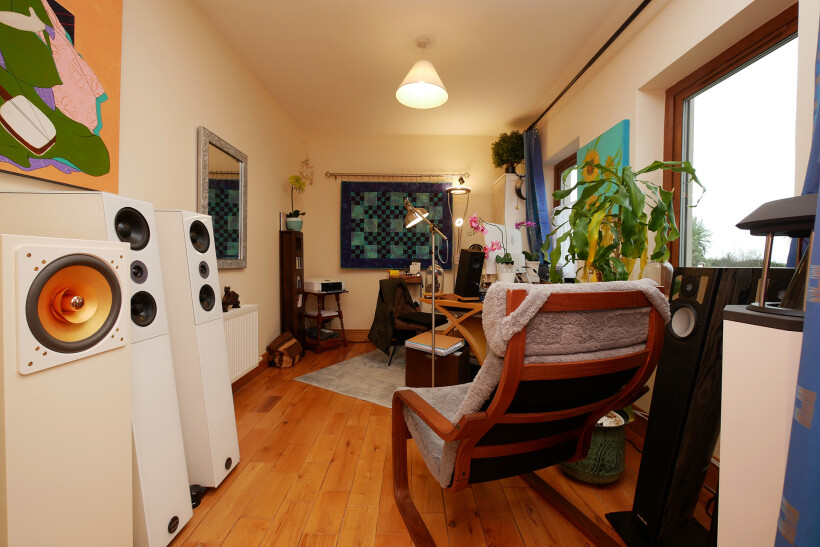
- I’m aware that you’re not exactly a fan of large audio events and their assocciated sensory overflow but after two years of restrictions, do you miss them?
Not at all. I’m a happy caveman. Unlike the majority of people who experience lockdown as enforced seclusion which they wish to escape as soon as possible to resume their social activities, our creative household has been on voluntary seclusion for a few decades already. It’s how we live anyways. Things come to us. We no longer need to go out for them, essentials like food and such excepted of course. I dislike crowds in general. Give me one-on-one interactions any day. For that a Zoom meet is far more satisfying than breathing recycled airplane air, sleeping on a cheap hotel mattress, walking my feet weary across a huge convention center or talking to the walking dead zombied out by sensory overload and being in promo mode stuck on an endless loop. I didn’t know about Zoom prior to C-19. That’s been a nice discovery which I intend to use regularly in the future.
- Since you’ve lived in Ireland for several years now, is there anything in particular you like and/or admire about the country?
We live on the Irish west coast which has fabulous vistas, hidden bays, craggy rocks, sandy or pebbly beaches and green pastures and woods as far as the eye can see. It’s gorgeous old country. The Irish have also endured many hardships across the centuries which they remember. They’re a hardy people that know how to get by on little and survive adversity. At least that’s been my sense and I really like that down-to-earth grit. Many of them also have a very unpretentious gift of gab. As a writer that’s a pleasure. The Irish simply don’t like to say no. They prefer to tell you what they think you want to hear. That part I don’t enjoy. I prefer it when people say what they mean and do what they said they would.
- Is Ireland’s cuisine to your liking?
I’m not exactly sure what that even is. A full Irish breakfast, like its British cousin.. good grief, that’s not at all our idea of clean food. We start our days with fresh blended juices. Because we deliberately live rural to enjoy a low population density, the going food here is simple farmer’s fare just as it would be in any other country. That means hearty and uncomplicated, not posh and swish. Soup ‘n’ sandwich with some mash on the side, my lord? That’s very much our speed. Particularly soda bread with seaweed and seafod chowder were lovely personal discoveries. But since C-19, we’ve not really eaten out. Ivette does all our cooking and is very good at it.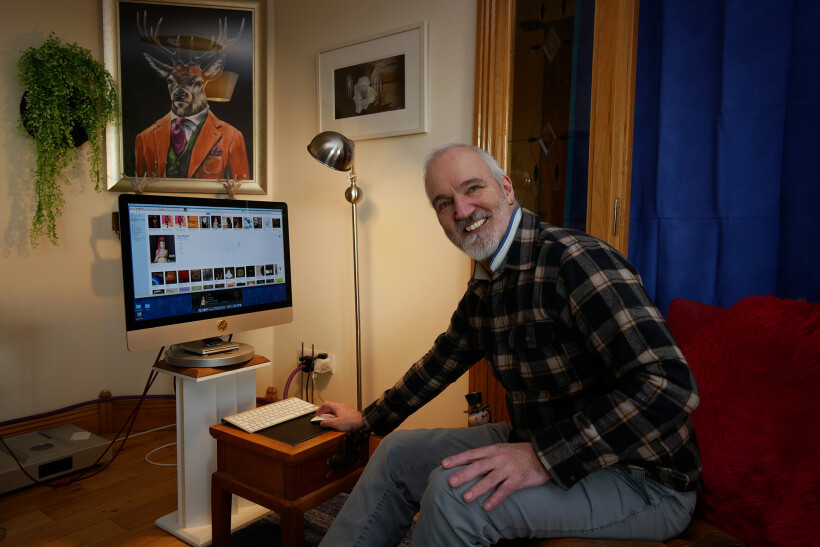
- What does the future for 6moons.com hold? Extra columns, interviews, industry features? Or it is business as usual?
By definition the future is unknowable, is it not? Nobody saw the pandemic coming though the melting of so much permafrost gives any thinking person pause. How many other diseases frozen in ice for millenia might rejoin our drinking water in the years to come? Also, interviews, industry features and editorials already are my business as usual. As I see it, each today turns into a tomorrow like a seamless continuation. What we do presently sets up the general direction for our immediate future. That’s unless/until life throws us a curveball. Then we join the marines to adapt, improvise and overcome. Unless good writers want to join my paid team to add new voices and viewpoints, it’ll probably continue as it has. I’m writing pretty much to capacity. Without more people sharing the gig, what you see is what you get. That said, John Darko and I just recorded a podcast. Once it goes live, I see what I think about my part in it. If I see potential and John is game, we might do more of them. If he tells me that editing my stuff was really hell, probably not. If somebody else wanted to record Zoom discussions with me, I’d be open too. Technology keeps changing. It’s important to remain connected and exploit new tools if they end in a more polished and interesting product. That’s what my reviews and articles are. They’re products like loafs of bread. I want them to look nice, taste good, be nutritious and not complicated to make. I don’t want empty calories, flash packaging or laborious production processes that add nothing of substance but steal precious time. So we’ll see what the future brings. I’m always open to more cooperations. I love cross-platform sharing. I already have that with you, with John Darko, with fairaudio.de and with Joël Chevassus. I’d happily add more if it benefits the two parties involved.
- And finally, anything you’d like to say to my readers prior to wrapping up? Any words of wisdom, advice, final thoughts?
That’s simple and back to the most basic of basics: trust your ears. It’s only them you must please. Don’t be afraid of making mistakes. It’s how we all learn. There’s nothing to fear. Bad sound can’t kill you. And what’s bad sound other than sound you don’t like? Change it and stop making a fuss. Experiment and enjoy diversity. Let curiosity, enthusiasm and self reliance be your guide. It’s your money you spend. Don’t ask strangers what to spend it on. All that’s just noise and window dressing. It’s grist for the mill but not the real thing. The real thing happens between you and your playback system. And that’s private and nobody else’s business. Enjoy. That’s the first and last step. Enjoy. If you find yourself somewhere in the middle and have lost touch with enjoyment, you’ve lost the plot. Regain that enjoyment or change hobbies. That’s it!


